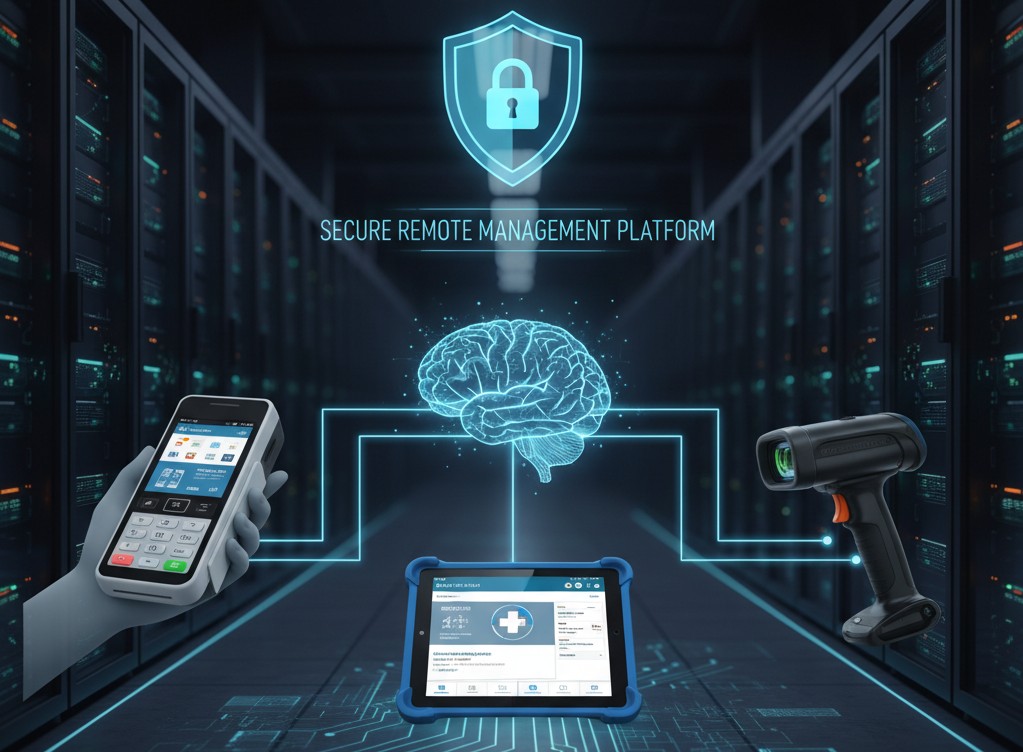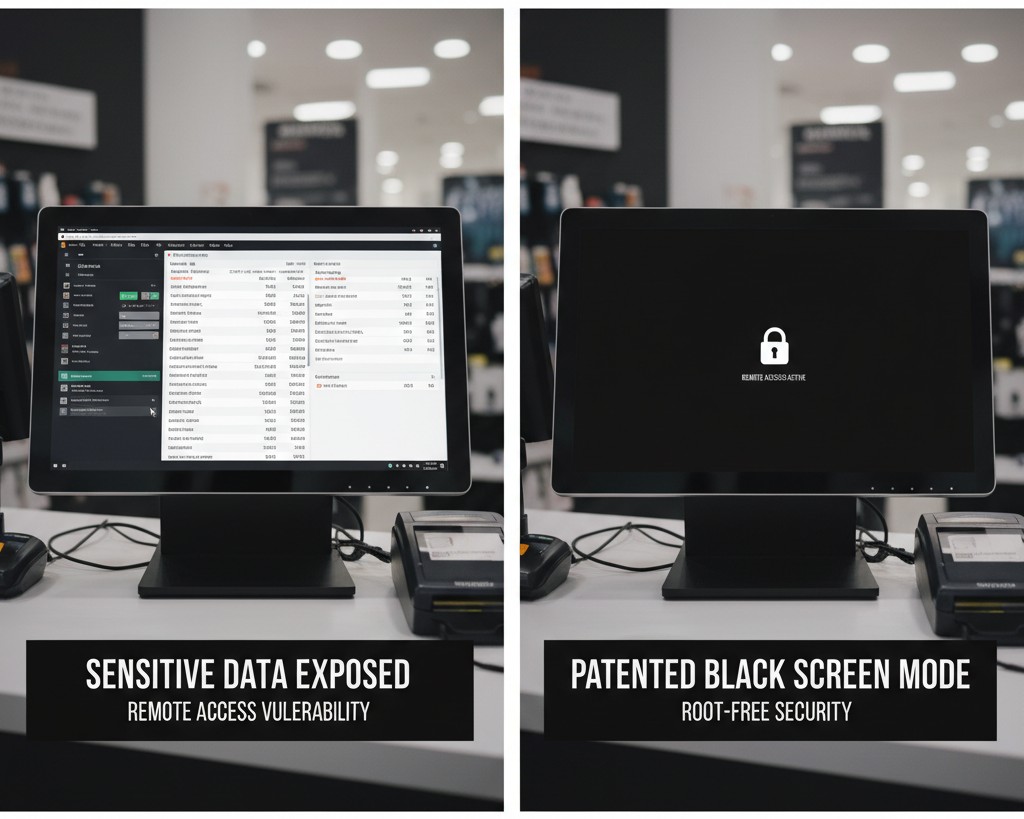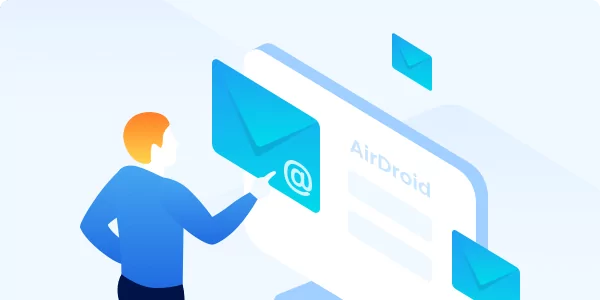Enterprise Remote Access Solutions for Android: A breakthrough in security compliance and large-scale operations
As digital transformation accelerates, enterprise remote access needs are shifting from traditional PCs to multiple terminal scenarios. Android devices, such as retail mPOS terminals, medical tablets, logistics field terminals, and industrial workshop equipment, are becoming critical vehicles supporting core business operations.
However, the adaptability shortcomings of "universal" remote access solutions for all platforms are becoming increasingly apparent in Android scenarios.
Compatibility issues caused by version fragmentation, privacy risks in physical scenarios, technical barriers to unattended operations, and efficiency bottlenecks in multi-system integration all leave enterprises facing difficulties in ensuring security, high operational costs, and prone to business interruptions.

This article will focus on the specific pain points of Android devices and, drawing on AirDroid Business's technological innovations and industry practices, detail how AirDroid Business achieves the goals of uncompromising security and compliance, improved efficiency at scale, and seamless cross-scenario adaptability through its three core capabilities:
- Patented privacy protection technology,
- root-free unattended access, and
- multi-system API integration.
This provides enterprises with a precise Android remote access solution.
Discover AirDroid Business
Transform your Android device management with AirDroid Business. Experience unparalleled security and efficiency.
- 1 : The Blind Spots and Crevices of Common Solutions for Remote Access on Android Devices
- 2 : Exclusive security compliance for Android devices: Building a strong "protective wall" for enterprise remote access
- 3 : Scaled Operation and Maintenance of Android Devices: From "Running People to Death" to "One Person Managing Thousands of Devices" - An Efficiency Transformation
- 4 : Enterprise Selection Guide: Determine if an Android-specific remote access solution is right for you
1The Blind Spots and Crevices of Common Solutions for Remote Access on Android Devices
Let’s have a look at some of the inadequacies of traditional, commonly used remote access solutions and how they give way to inefficiency operations and even security risks.
Data Insights: Android devices have become core terminals for enterprise remote access
According to the 2024 Gartner "Enterprise Mobile Device Management (MDM) Market Guide" and industry research data, Android devices account for 62% of global enterprise remote access terminals. In the four major industries of retail (mPOS terminals, digital signage), healthcare (mobile diagnostic devices, monitoring tablets), logistics (field terminals), and manufacturing (industrial tablets, AGV control panels), the Android device penetration rate exceeds 75%.
However, 78% of common enterprise remote access solutions have significant shortcomings in Android scenarios, directly leading enterprises to face "three highs":
1. Poor version compatibility
The cross-version compatibility rate between Android 7 and Android 14 is less than 50%. Legacy devices (such as Android 9) and custom-built terminals (such as Huawei enterprise tablets and Zebra industrial equipment) often cannot enable core control functions.
2. Weak security control
Only basic transmission encryption is supported, lacking scenario-specific protection for Android's "physical screen privacy," "root access risks," and "peripheral device troubleshooting."
3. Low O&M efficiency
Thousands of devices must be manually configured one by one, with deployment taking 15 minutes per device (five times that of a PC). Furthermore, remote session freezes in weak network environments exceed 40%, and troubleshooting takes an average of 24 hours.
AirDroid Business: An all-in-one remote access + MDM solution for Android
Unlike general-purpose products that offer full platform coverage but compromise on Android scenarios, AirDroid Business, with official Android Enterprise certification as its technical foundation, focuses on the "closed-loop remote access + full lifecycle management" needs of Android devices. Its core advantages lie in four key areas:
1. Full-scenario compatibility
Covering all versions of Android from 7 to 14, AirDroid Business supports native operating systems, custom terminals (such as retail mPOS and medical monitors), and industrial devices (such as factory-installed AGV control panels).
2. Patented security protection
The company's first black screen mode (patent applications submitted in the US and Europe) and root-free, unattended access address Android device privacy and system vulnerability risks.
3. Efficient O&M tools
Through group management, adaptive video quality, and remote camera control, AirDroid Business achieves a significant efficiency leap, enabling "one person managing thousands of devices".
4. Multi-system integration
Supports remote control API integration with ITSM, CRM, service desk, and other systems, breaking down O&M data silos.
As of 2024, AirDroid Business has served numerous enterprise customers worldwide and has become one of the preferred remote access solutions to Android devices.
Overcome Android Challenges
Struggling with Android device management? AirDroid Business offers solutions tailored to your needs.
2Exclusive security compliance for Android devices: Building a strong "protective wall" for enterprise remote access
Security and compliance are the lifeblood of enterprise remote access. Android devices, with their mobility, high physical access frequency, and diverse peripherals, present more complex risks than PCs. AirDroid Business builds a comprehensive Android security system focused on privacy protection, industry compliance and permission management.
Privacy protection: core technology for preventing data leakage in Android scenarios
Let’s now talk about how AirDorid Business handles the top most concern for enterprises i.e. privacy protection and data security.
Patented black screen mode: the ultimate protection for physical screen privacy
Android devices are often used in public settings (such as store POS terminals and tablets at hospital nurse stations). If the screen is visible during remote control, sensitive data can be easily viewed by on-site personnel. AirDroid Business' patented Black Screen Mode allows:
- 1. When a remote connection is initiated, the Android device's physical screen goes black, leaving only the administrator's interface visible.
- 2. Blocks local device operations (such as touch and button presses) to prevent accidental touches or malicious intervention by on-site personnel.
- 3. Automatically restores the screen to normal after the session ends, without affecting local device use.
Compared to the common "software-based screen hiding" solution (which only blocks part of the interface while leaving the physical screen visible), this technology completely eliminates the risk of "visual leakage."
Non-Root Access: Circumventing Android Security Vulnerabilities
Rooting (gaining full privileges on Android devices) is a common prerequisite for achieving "unattended access" with common solutions. However, rooting carries three major risks: decreased system stability (increasing failure rates by 40%), voiding manufacturer warranties, and increasing the risk of malware intrusion. AirDroid Business leverages deeply optimized native Android APIs to achieve.
- 1. Enable unattended access without rooting, supporting automatic reconnection after a device reboot.
- 2. Compatible with all non-rooted Android devices, including manufacturer-locked custom devices (such as Huawei enterprise tablets and Zebra industrial terminals).
- 3. Avoids system vulnerabilities caused by rooting, achieving Google Play Protect security certification.
A logistics company once experienced system crashes on 15% of its field tablets due to common solutions requiring rooting, resulting in replacement costs exceeding 200,000 yuan. After switching to AirDroid Business, the device failure rate dropped to 2%, and warranty benefits were fully preserved.
Remote Camera Control: Privacy Management for “Virtual Presence”

Taking advantage of the diverse mobility of Android devices, AirDroid Business supports remote access to device cameras, providing dual privacy protection for "operation and maintenance + environmental monitoring".
- 1. Real-time Viewing
Administrators can remotely access the device's front and rear cameras to view the device's surroundings (e.g., confirming whether a store's POS machine is in a secure area); - 2. Flexible Parameter Adjustment
Supports adjusting camera focus and brightness, facilitating troubleshooting peripheral issues (e.g., checking if a barcode scanner is jammed); - 3. Privacy Permission Control
Camera access requires individual authorization, and operation logs are fully encrypted and stored to meet data privacy compliance requirements.
A security company used this feature to remotely access patrol tablet cameras to verify on-site conditions, reducing emergency response time from one hour to 10 minutes while also eliminating the risk of on-site personnel accidentally photographing sensitive areas.
Compliance adaptation: covering the compliance requirements of Android devices in multiple industries
HIPAA Compliance in the Healthcare Industry
A core requirement for remote access in the healthcare industry is patient data privacy protection, requiring compliance with HIPAA (Health Insurance Portability and Accountability Act) requirements for data traceability, encrypted transmission, and local storage. AirDroid Business offers the following features for medical Android devices (such as diagnostic tablets and mobile monitors).
- 1. Encrypted Session Logs
Automatically record the entire remote operation process, including operator ID, timestamp, and operation details. Logs are encrypted and stored using AES-256 encryption, accessible only to authorized personnel. - 2. Data Localization
Store session logs and device data on local enterprise servers or in compliant clouds (such as AWS GovCloud) to prevent cross-region transmission violations. - 3. Minimized Privileges
Limit access to devices related to their specific duties to medical personnel (e.g., physicians can only access tablets in the medical ward remotely), preventing unauthorized access. A rehabilitation center in the United States (serving over 3,000 patients) uses AirDroid to manage over 200 medical tablets. It has passed HIPAA compliance audits for three consecutive years without any data breaches, and has increased remote diagnosis and treatment efficiency by 50%. Equipment failures that previously required an hour of on-site debugging can now be resolved remotely in just five minutes.
PCI-DSS Compliance for the Retail/Financial Industry
Android devices like retail POS terminals and financial self-service terminals must comply with PCI-DSS requirements. AirDroid Business was developed specifically for these scenarios.
- 1.Secure Session Control
By setting permissions within remote sessions (e.g., disabling screenshots, screen recording, and file transfers), you ensure that no sensitive payment data is accessed or recorded during remote debugging, thereby complying with PCI-DSS security audit requirements. - 2.Compliance Log Synchronization
Remote operation logs are synchronized to the company's compliance system in real time, allowing audit agencies to access them at any time.
Permission control: Refined Android device access rights allocation
Enterprise Android devices are often divided by region, scenario, or department (e.g., "Beijing Chaoyang District Store POS Group" or "Shanghai Hongqiao Warehouse Logistics Tablet Group"). The general "full device permissions" model can easily lead to abuse when it comes to enterprise remote access mechanism. AirDroid Business offers
- 1.Device Group Management
Supports creating groups by region, device type, and user department, with independent remote access policies configured for each group. - 2.Role-Based Permissions
Pre-configured roles such as "IT Administrator (Full Permissions), Regional Operations (Access Devices in Local Region Only), and Observer (View Only, No Actions)" are available, along with custom permissions (e.g., "Allow Remote Wake-Up but Disallow Data Erase"). - 3.Dynamic Permission Adjustment
Supports temporary authorizations (e.g., "Grant Third-Party Engineer 2-Hour Debugging Permissions") that are automatically revoked upon expiration, preventing long-term unused permissions.
A national supermarket chain (over 500 stores) has used this system to improve Android device permission management efficiency by 90%. Regional operations permissions adjustments, which previously took a day, can now be completed in 10 minutes, with no unauthorized access incidents.
3Scaled Operation and Maintenance of Android Devices: From "Running People to Death" to "One Person Managing Thousands of Devices" - An Efficiency Transformation

The large number, scattered distribution, and diverse use cases of enterprise Android devices make traditional on-site maintenance expensive and inefficient. AirDroid Business reduces costs and improves efficiency in Android device maintenance through batch deployment, unattended operation, and visual monitoring.
Batch deployment: zero threshold and fast binding of Android devices
A variety of flexible registration methods to meet the needs of multiple scenarios
AirDroid Business offers four enrollment methods to meet diverse enterprise Android device deployment scenarios (such as new device unpacking, existing device upgrades, and cross-regional store expansion).
- 1. Android Enterprise Zero Touch Enrollment
Integrated with the Google ecosystem, bulk-purchased devices are managed out of the box, eliminating manual intervention. - 2. QR Code Enrollment
Scan a unique QR code for 30-second enrollment. Devices without cameras can enter a 6-digit verification code for automatic client installation. - 3. Device Owner Provisioning
Obtain device owner permissions via USB/NFC, preventing factory resets and client uninstallation. - 4. EMM Token Enrollment
Remotely activate and enroll via EMM tokens, supporting cross-region and weak network environments without on-site personnel.
Pre-configured templates: ensuring consistent configuration of Android devices
Enterprise Android devices often require unified application installation and permission settings (for example, POS machines must install cash register software and prohibit uninstallation). Manual configuration can easily lead to version inconsistencies and missed permissions. AirDroid Business's pre-configured templates feature allows
- 1. Pre-create scenario-specific templates, such as the "Retail POS Template" (pre-installed with cash register software and a QR code scanning tool, prohibiting uninstallation of enterprise apps and enabling black screen mode) and the "Logistics Tablet Template" (pre-installed with a logistics app, allowing remote wakeup, and blocking entertainment apps).
- 2. Automatically apply templates upon binding new devices: This eliminates the need for administrators to perform individual configuration changes, reducing configuration error rates to 0.1%.
Batch template updates
When upgrading apps or adjusting permissions, modifying the template is pushed to all connected devices at once, eliminating duplication of effort.
After implementing this feature, a convenience store chain saw configuration consistency on Android devices increase from 70% to 100%, reducing device failures due to inconsistent configurations by 85%, and saving over 40 hours of troubleshooting time per month.
Unattended Operations: Reduce on-site support costs for Android devices
Remote wakeup + scheduled tasks: Breaking through the "sleep barrier" of Android devices
Android devices often go into automatic sleep mode to conserve battery life. However, common solutions for sleeping devices cannot be accessed remotely, requiring on-site personnel to manually power them on, increasing operational costs. AirDroid Business addresses this pain point through remote wakeup technology and scheduled tasks.
- 1.Remote Wakeup
Supports waking devices from sleep mode over the Local Area Network (LAN) or Wide Area Network (WAN), even when the battery level is below 10%. Compatible with over 95% of Android devices. - 2.Scheduled Tasks
Set up a "scheduled wakeup + automatic maintenance + sleep" closed-loop system, such as "wake up your logistics tablet at 2 AM every day → automatically upload the day's logistics data → automatically sleep after the upload is complete." - 3.Network Reconnection
After a network outage, the device automatically reconnects to the AirDroid dashboard when it regains connectivity, ensuring uninterrupted operational tasks. After a cold chain logistics company (300 field tablets) applied this technology, the success rate of nighttime data uploads increased from 75% to 100%. There was no need for field staff to manually turn on the tablets in the early morning, saving over 80,000 yuan in labor costs per month and reducing the data reporting delay rate to 0.
Batch update + troubleshooting: "zero legwork" operation and maintenance of thousands of devices
App updates and bug fixes are high-frequency maintenance requirements for Android devices. Common solutions require device-by-device updates, which is extremely inefficient. AirDroid Business's batch maintenance features allow:
- 1. Batch App Updates
Compresses installation packages to 30% of their original size (e.g., a 100MB app can be compressed to 30MB), supports resumable downloads in weak network conditions, and reduces the time required to update thousands of devices from 8 hours (with a manual visit) to 1 hour. - 2. Remote Fault Repair
Quickly resolve issues using "remote desktop control + script push." For example, if the POS software crashes, the administrator can remotely push a fix script, completing the repair within 5 minutes. - 3. System Backup and Restore
Supports system image backup for Android devices, restoring a device to normal status within 10 minutes in the event of a fault, preventing data loss. After adopting AirDroid, a chain of home appliance stores (with 800 POS terminals) reduced equipment failure resolution time from an average of 24 hours (on-site repair) to 15 minutes, and annual operation and maintenance costs dropped from 2 million yuan to 400,000 yuan, a reduction of 80%.
Adaptive video quality: "smooth guarantee" in weak network environments
To address the frequent use of Android devices in weak network environments (such as rural stores and outdoor logistics sites), AirDroid Business has developed Adaptive Video Quality technology:
- 1. Real-time bandwidth adaptation
Dynamically detects network bandwidth (from weak 512Kbps to stable 5G) and automatically adjusts the video stream size to avoid lags. - 2. Operational command priority
Even if video quality degrades, administrators' clicks, inputs, and other commands are still responded to in real time, ensuring efficient troubleshooting.
Visual monitoring: real-time understanding of Android device status
After implementing this technology for a rural retail chain, the remote session lag rate in weak network environments dropped from 40% to 5%, and the store equipment troubleshooting rate increased to 98%.
Visual monitoring: real-time understanding of Android device status
AirDroid Business's multi-dimensional dashboard provides administrators with 12 core metrics for early problem detection and resolution:
- 1. Basic Status
Online/Offline status, battery level (automatically highlighted in red when below 20%), network connection type (Wi-Fi/4G/5G), and remaining storage space. - 2. Application Status
Installed app list, app version, and abnormal apps (such as unauthorized software). - 3. Location Information
Supports real-time positioning of logistics tablets and field terminals, with historical tracking available (to meet privacy compliance requirements). - 4. Remote Sessions
Current number of active sessions, session duration, and operator, with support for real-time interruption of abnormal sessions.
Third-party API integration: Breaking down system silos and achieving "one-stop operation and maintenance"
Traditional tools used as remote access solutions are disconnected from existing enterprise systems (ITSM, CRM, and Service Desk), resulting in fragmented operational data and inefficiencies. AirDroid Business's Remote Control API supports seamless integration:
- 1. IT Operations System Integration
Links with ITSM (such as ServiceNow) and Help Desk systems. When a device failure alert is triggered, the system directly redirects to the AirDroid remote access interface, eliminating the need to switch platforms. - 2. Business System Integration
Integrates with CRM and retail store management systems. When you encounter anomalies in store sales data, you can remotely access the corresponding POS machine with one click to troubleshoot the issue. - 3. Custom Device Integration
Supports embedding remote access capabilities into kiosks, custom Android devices, and OEM devices, providing operational support for proprietary hardware.
After integrating the AirDroid API into its workshop equipment management system, a large manufacturing company reduced its response time to equipment failures from 30 minutes to 5 minutes.
Operations data is synchronized with production systems in real time, preventing production line downtime caused by equipment failures.
4Enterprise Selection Guide: Determine if an Android-specific remote access solution is right for you
Not all companies require a dedicated Android solution; each company must consider its own device structure and business needs. The following guide can help companies quickly select a solution, avoiding the mismatch between a universal solution and compatibility issues, or the wasteful investment in a dedicated solution.
Selection Self-Checklist: 3 Core Judgment Criteria
If an enterprise meets any two of the following criteria, we recommend prioritizing an Android-specific remote access solution (such as AirDroid Business):
- 1. High Android device penetration
Android devices account for ≥50% of remote access endpoints, or core business operations rely on Android devices (such as retail POS terminals or medical tablets). - 2. Existing Android-specific pain points
Needing to address requirements such as "non-root access, peripheral debugging, and batch sleep/wakeup" that general solutions don't cover. - 3. Strict compliance requirements
Industries such as healthcare (HIPAA), finance (PCI-DSS), and retail (payment data protection) require scenario-specific compliance features for Android devices.
If an enterprise primarily relies on PC-based remote access (Android devices account for less than 30%) and has no specific compliance requirements, a general solution may offer a cost advantage.
Pilot implementation steps: 3 steps to verify the value of the solution
To reduce selection risk, we recommend implementing the solution through a "small-scale pilot → core scenario verification → full rollout" process, with a timeline of 1-2 months:
- Step 1:Small-Scale Device Binding (10-20 devices)
- Select Android devices from a representative department/region (e.g., "10 POS terminals in a store" or "5 medical tablets in a department")
- Quickly bind devices using AirDroid Business's QR code/deployment code, testing basic functions such as remote control, black screen mode, and non-root access.
- Objective: Verify the solution's compatibility with the company's existing Android devices and troubleshoot fundamental issues such as version incompatibility and device binding failures.
- Step 2:Core Scenario Verification (1-2 weeks)
- Test high-frequency enterprise O&M scenarios, such as "batch application updates," "remote wakeup," and "peripheral device debugging."
- Record changes in key metrics, such as troubleshooting time, O&M manpower, and device failure rate.
- Compare costs before and after the pilot: for example, "O&M for 10 POS terminals required 1 person/day before the pilot, but only 0.5 person/day after the pilot."
- Step 3:Cost and Compliance Assessment
- Calculate the three-year total cost of ownership (TCO), including subscription fees, O&M manpower costs, and device failure losses, and compare with common solutions.
- Compliance Verification: Export session logs and permission configuration records to verify compliance with industry compliance requirements (such as HIPAA audits).
- Decision-making: If O&M costs are reduced by ≥30% after the pilot and compliance is achieved, launch a full rollout. If not, analyze the reasons (e.g., insufficient scenario adaptation) or adjust the plan.
Exclusive support for AirDroid Business: Lowering the barrier to entry
To help businesses quickly pilot their business, AirDroid Business offers a "low-risk, high-support" implementation guarantee:
- 1. Free Trial
A 14-day, fully functional trial with support for up to 100 Android devices, no upfront fees required; - 2. Compliance Resources
Provides Android Enterprise certification documents, HIPAA/PCI-DSS compliance guides, and audit log templates. - 3. Customized Solutions
Provides specialized configuration templates for industries like retail, healthcare, and logistics, such as the "Retail POS Template" and the "Medical Tablet Template". - 4. Technical Support
Dedicated consultants are available 24/7 to respond to pilot questions and provide remote training (such as administrator tutorials).
Secure and Efficient Solutions
Ensure your enterprise's security and compliance with AirDroid Business. Optimize operations at scale.
5Conclusion: In the era of Android devices, the right remote access solution means cost reduction and security.
As Android devices evolve from "auxiliary terminals" to "core business vehicles," the "one-size-fits-all" approach is no longer effective. Enterprises need remote access solutions tailored to Android scenarios, ensuring a strong security and compliance defense while reducing operational costs at scale.
AirDroid Business, an all-in-one remote access + MDM solution specifically designed for Android, addresses the challenges of poor adaptability, weak security, and low efficiency faced by general solutions in Android scenarios through patented technologies like black screen mode, root-free access, and batch operations. It has helped companies like Walmart and Philips Healthcare achieve unbreakable security and highly efficient operations.
If your company is facing challenges with Android device remote access, click [Get a Customized Demo] to experience the full service for 14 days free and receive a copy of the [Unclear] to learn more about industry use cases.
Choosing the right Android-specific solution will make remote access a cost-effective tool for reducing costs and increasing efficiency, rather than a security and compliance risk.







Leave a Reply.